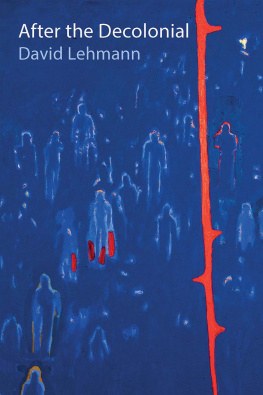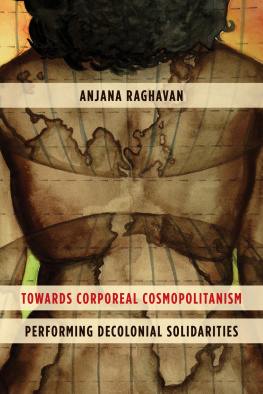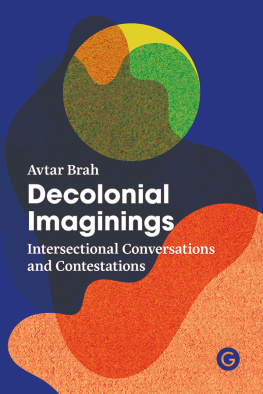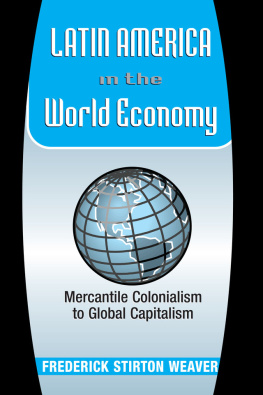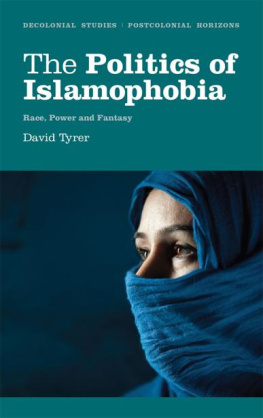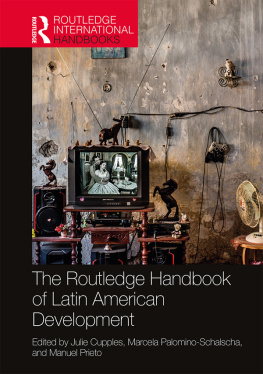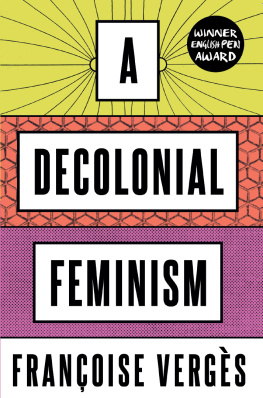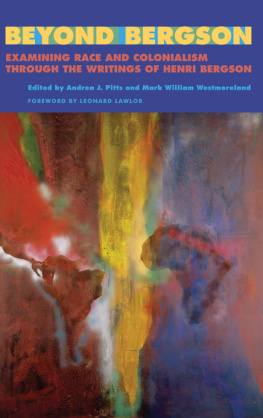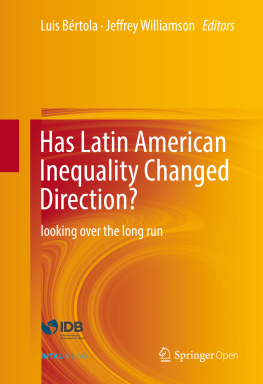Copyright David Lehmann 2022
The right of David Lehmann to be identified as Author of this Work has been asserted in accordance with the UK Copyright, Designs and Patents Act 1988.
First published in 2022 by Polity Press
Polity Press
65 Bridge Street
Cambridge CB2 1UR, UK
Polity Press
101 Station Landing
Suite 300
Medford, MA 02155, USA
All rights reserved. Except for the quotation of short passages for the purpose of criticism and review, no part of this publication may be reproduced, stored in a retrieval system or transmitted, in any form or by any means, electronic, mechanical, photocopying, recording or otherwise, without the prior permission of the publisher.
ISBN-13: 978-1-5095-3754-9
A catalogue record for this book is available from the British Library.
Library of Congress Cataloging-in-Publication Data
Names: Lehmann, David, author.
Title: After the decolonial : ethnicity, gender and social justice in Latin America / David Lehmann.
Identifiers: LCCN 2021016748 (print) | LCCN 2021016749 (ebook) | ISBN 9781509537525 (hardback) | ISBN 9781509537532 (paperback) | ISBN 9781509537549 (epub)
Subjects: LCSH: Latin America--Social conditions--21st century. | Latin America--Economic conditions--21st century. | Equality--Latin America. | Latin America--Race relations. | Multiculturalism--Latin America. | Sex role--Latin America.
Classification: LCC HN110.5.A8 L424 2022 (print) | LCC HN110.5.A8 (ebook) | DDC 306.098--dc23
LC record available at https://lccn.loc.gov/2021016748
LC ebook record available at https://lccn.loc.gov/2021016749
The publisher has used its best endeavours to ensure that the URLs for external websites referred to in this book are correct and active at the time of going to press. However, the publisher has no responsibility for the websites and can make no guarantee that a site will remain live or that the content is or will remain appropriate.
Every effort has been made to trace all copyright holders, but if any have been overlooked the publisher will be pleased to include any necessary credits in any subsequent reprint or edition.
For further information on Polity, visit our website:
politybooks.com
Preface: In the time of COVID
Being a Latin Americanist is an emotional involvement. Over fifty years, my life has been enhanced immeasurably, and sometimes dominated, by the irresistible embrace of friendships, partnerships and solidarities. It is like a force field, a vortex, not infrequently tied to utopian imaginaries and the political crises in which they lie buried crises which in these fatal, murderous years of 2020 and 2021 (as so often, everywhere but Uruguay and Costa Rica) have tested the frontiers of credibility.
It has been an intellectual, professional and personal roller-coaster rising and falling between ephemeral victories of progress and justice and long periods of despondency the pain of Chiles September 1973, of Argentinas dirty war, of Perus Sendero Luminoso Few of us do not have friends and colleagues who have suffered exile, imprisonment, torture and death, and that was before the unspeakable, indescribable cruelty of the current occupant of the Brazilian presidency and the irresponsibility of his Mexican counterpart, together presiding over the deaths of hundreds of thousands from disease and organized violence a multiple of all the dictatorships together.
In the 1970s, Latin American Studies were a festival of ideas and conviviality shrouded in the hope that eventually times would improve and that we would contribute to that improvement. Debates and disputes among the theoretical-political factions raged in the days when we used to speak to each other. Ours is the luckiest generation ever something for which future, less fortunate generations may not forgive us. We have been blessed with an abundance of research and travel funding, and the internationalization of postgraduate education which has opened the way to enduring intellectual partnerships and personal friendships.
If I write a book which is quite critical of some of the most influential progressive ideas of our time in Latin America and beyond, it is because of those experiences and those tragedies. The record of left wing and progressive governments in the region is deeply disappointing: the only truly successful ones were the two terms of Lulas presidency in Brazil, and Mujica in Uruguay. But even Lulas time in office was tarnished by corruption, and then retrospectively by the trials (literally) and tribulations of his successor Dilma Roussef. The impeachment of Dilma, in her second term, was ruthlessly unfair, subjecting her to cruel, shameless, misogynistic vilification. The only other truly left-wing governments were Chiles Unidad Popular, the first period of the Peruvian military regime inaugurated in 1968, and the early Sandinistas, but they all crashed out in military overthrow, economic crisis or armed insurrection openly supported by US intervention. In the light of subsequent prevailing orthodoxies, even the Christian Democrat government that preceded Unidad Popular, could be regarded as left wing. I do not regard post-1973 Peronism as a left-wing, let alone socialist, force, nor will I confer that title on Chavez-Maduro or Correa. They used control of the state to perpetuate themselves in power and neuter opposition, without undertaking sustainable universalist programmes to eliminate poverty or reduce inequality: instead they have distributed benefits to their followers and prebends to their associates and sought to suffocate the media. Evo Morales, like Lula-Dilma, did undertake consistent left-wing reforms only to fall victim to his own abuse of power. Cuba belongs in another category: while Castros road to power has been imitated, without success save, briefly, in Nicaragua, no political force has ever proclaimed Cuba as a model of government or development.
The leading figures of the decolonial have assembled in a single category the highly diverse group of Chavez-Maduro, Correa, Morales, Mujica and Lula-Dilma, and adopt a dismissive attitude to Marxism; their interpretations privilege culture and colonialism, race and ethnicity over economics, capitalism and class. I ask whether they offer a convincing diagnosis of the current situation and its origins and whether it offers a basis for a historical project to pursue social justice.
I use the words social justice in a universalist sense: sustainable redistribution of income and wealth that extends into the future and is not undone by coups dtat or economic crisis. It is a demanding criterion, for sustainability means that reforms are not undone even in the event of electoral defeat. If they are not politically sustainable, what is the point?
The decolonial is likely to label such universalism neoliberal and Eurocentric. Yet, when I look beyond the grand schema to the research it inspires and the movements it applauds, I find, despite explicit or implicit protestations to the contrary, that the aspirations of legal and feminist anthropologists and indigenist movements like the Zapatistas, especially indigenous women leaders, are universalist. They are sceptical of projects of cultural regeneration unless they go together with commitments to gender equality, to a reduction of class inequality and to an end to the organized violence which is more pervasive in Latin America than in almost any other part of the world.

